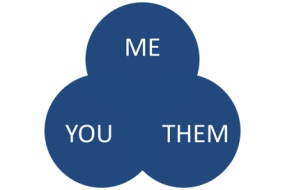“When we are no longer able to change a situation, we are challenged to change ourselves.”
― Viktor E. Frankl, Man’s Search for Meaning
Today marks the birthday of Viktor E. Frankl, a person whose ideas about we humans have been a driving force in my life for decades.
I was first introduced to Frankl in graduate school and immediately felt drawn to his clear and compelling vision of how we are and how we should be. Frankl talks of the human condition and the power we have, if we choose to use it, to not just survive, but to thrive.
His own life is an example and a proof of his ideas and observations. His thinking grows from his experiences during World War II, especially his time spent in concentration camps.
This is powerful stuff …
“It is not freedom from conditions, but it is freedom to take a stand toward the conditions.”
― Viktor E. Frankl, Man’s Search for Meaning
I have used his work in therapy, business, and teaching, as well as to become a better father, parent, and citizen. He simply talks to our human condition in all manner of contexts. For those of us who would lead and influence others, especially in times of great challenge, Frankl is a must-read … but you cannot just read his ideas. You have to absorb them.
Here’s a suggested Personal Learning Plan for you:
To hear and see this gentle giant talk powerfully about our search for meaning in TEDTalk fashion: CLICK HERE
To read more of his wisdom, click on Viktor Frankl quotes on Goodreads
Then purchase Man’s Search for Meaning and reserve a small space of time to read this thin, yet incredibly full book. You will find the few shekels to be one of your better investments.
If you already own the book, dust it off, get real comfortable, and revisit each page. You will not regret the few hours of reading.
“An abnormal reaction to an abnormal situation is normal behavior.”
― Viktor E. Frankl, Man’s Search for Meaning
Once you are hooked, go find a copy of The Will To Meaning: Foundations and Applications of Logotherapy. This is Frankl’s more academic discussion of Logotherapy, based on his personal and professional experiences. Don’t worry, it’s not as clinical as the title sounds.
Dusting off a very light layer of dust on a very old and very used book in the Heartland ….
John








You must be logged in to post a comment.